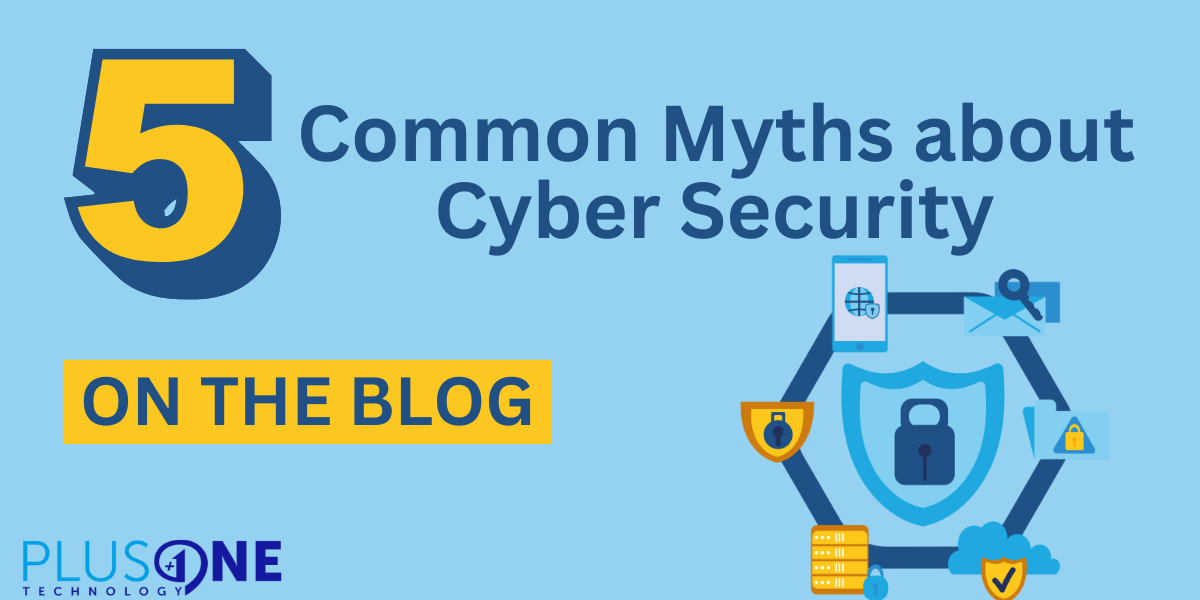Cyber security is a crucial aspect of modern business and personal safety, yet many myths persist about its importance and implementation. These misconceptions can leave individuals and companies vulnerable to cyber attacks. In this blog post, we will debunk five common myths about cyber security and provide insights into the realities of protecting your digital assets.
1. Small Companies Are Not Targeted by Cyber Criminals
One of the most prevalent myths is that small companies are not targets for cyber criminals. The truth is that many cyber attacks are not aimed at specific companies but rather cast a wide net to ensnare as many victims as possible. These broad attacks often exploit vulnerabilities in accounts with the least amount of security. Small businesses, which might not have robust cyber security measures in place, can become easy prey for cyber criminals. Every company, regardless of size, should invest in comprehensive cyber security to safeguard against these indiscriminate attacks.
2. Security Costs Too Much
Another common misconception is that cyber security is prohibitively expensive. While it is true that implementing high-quality security measures can be costly, these investments are crucial for risk mitigation. The cost of a breach far outweighs the expense of preventive measures. Companies that have experienced cyber events often express regret for not having invested in security before suffering the consequences. The financial and reputational damage of a breach can be devastating, making proactive cyber security investments essential.
3. My Data Isn’t Important
Many individuals and businesses believe that their data is not valuable enough to be targeted by hackers. However, even minimal company data can be a goldmine for cyber criminals. The costs associated with recovering from a breach, including loss of productivity and reputational damage, can be substantial. Every piece of data has value, and protecting it should be a top priority. Hackers often exploit seemingly trivial information to launch more extensive attacks, making the protection of all digital assets essential.
4. A Cyber Attack Only Occurs If They Infiltrate Your Computers or Network
A widespread myth is that cyber attacks only happen when hackers infiltrate computers or networks. In reality, one of the most probable occurrences of cyber attacks is account compromise. Cyber criminals can find passwords leaked on the dark web or use bots to crack simple passwords, gaining access to email or other accounts without any direct interaction with the victim’s computer. This type of attack is particularly insidious because it can happen without the user knowing until it is too late. Strengthening account security with complex passwords and multi-factor authentication is crucial to prevent such breaches.
5. It’s Okay to Use the Same Password and Username Combination Across Accounts If It Is a Complex Password
Convenience often leads people to use the same password and username combination for multiple accounts, believing that a complex password is enough to keep them safe. However, this practice is extremely risky. If this combination is ever leaked on the dark web, hackers can access all accounts associated with it, not just the one initially compromised. To mitigate this risk, it is essential to use unique passwords for different accounts and consider employing a password manager to keep track of them securely.
Conclusion
In conclusion, understanding and debunking these common myths about cyber security is vital for protecting both personal and business digital assets. Small companies are indeed targets for cyber criminals, and the cost of security is a necessary investment to prevent more significant losses. Every piece of data is valuable, and cyber attacks can occur without direct infiltration of systems. Finally, using unique passwords for different accounts is a fundamental practice to enhance security. By addressing these misconceptions, individuals and businesses can take proactive steps to safeguard their digital environments against cyber threats.







